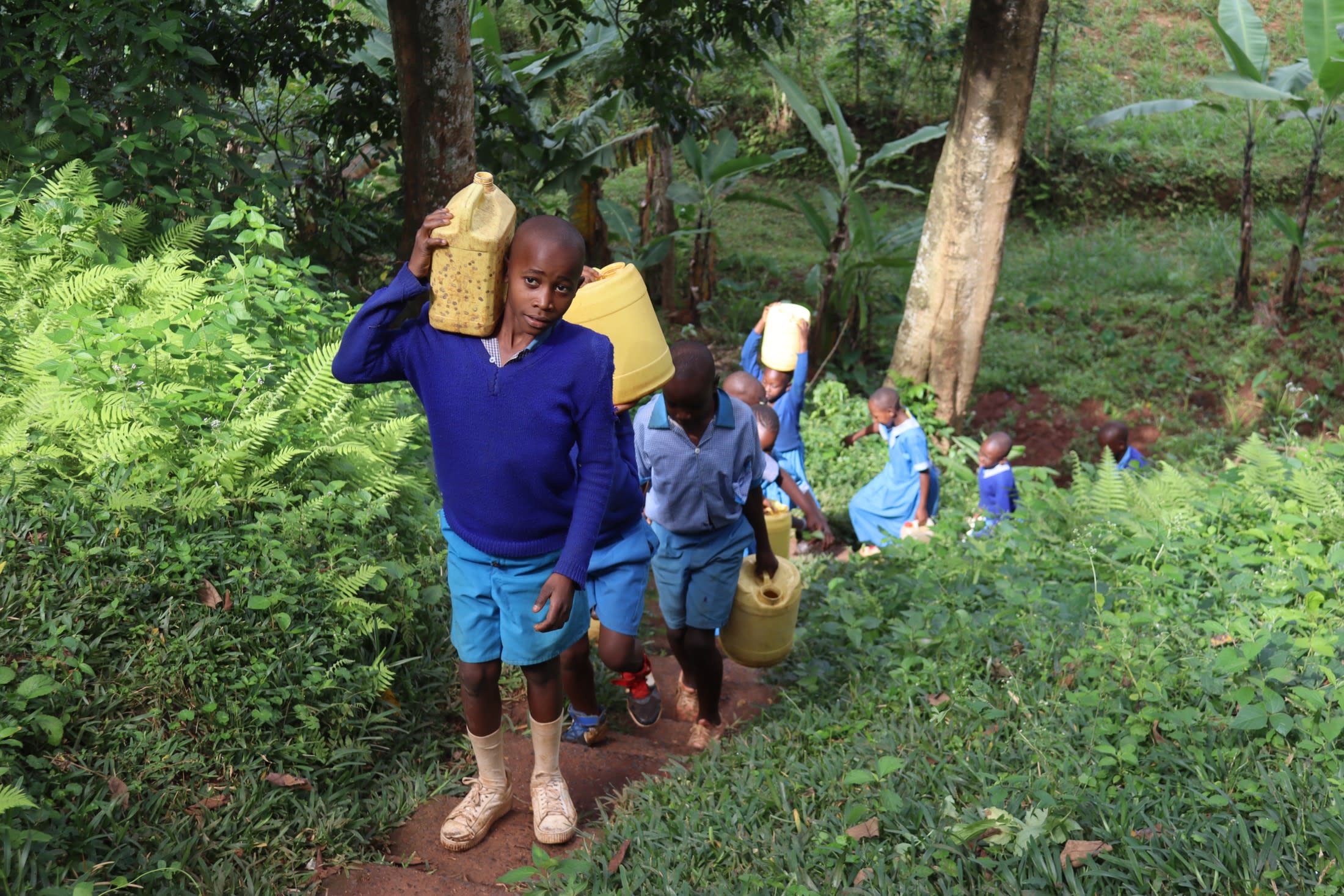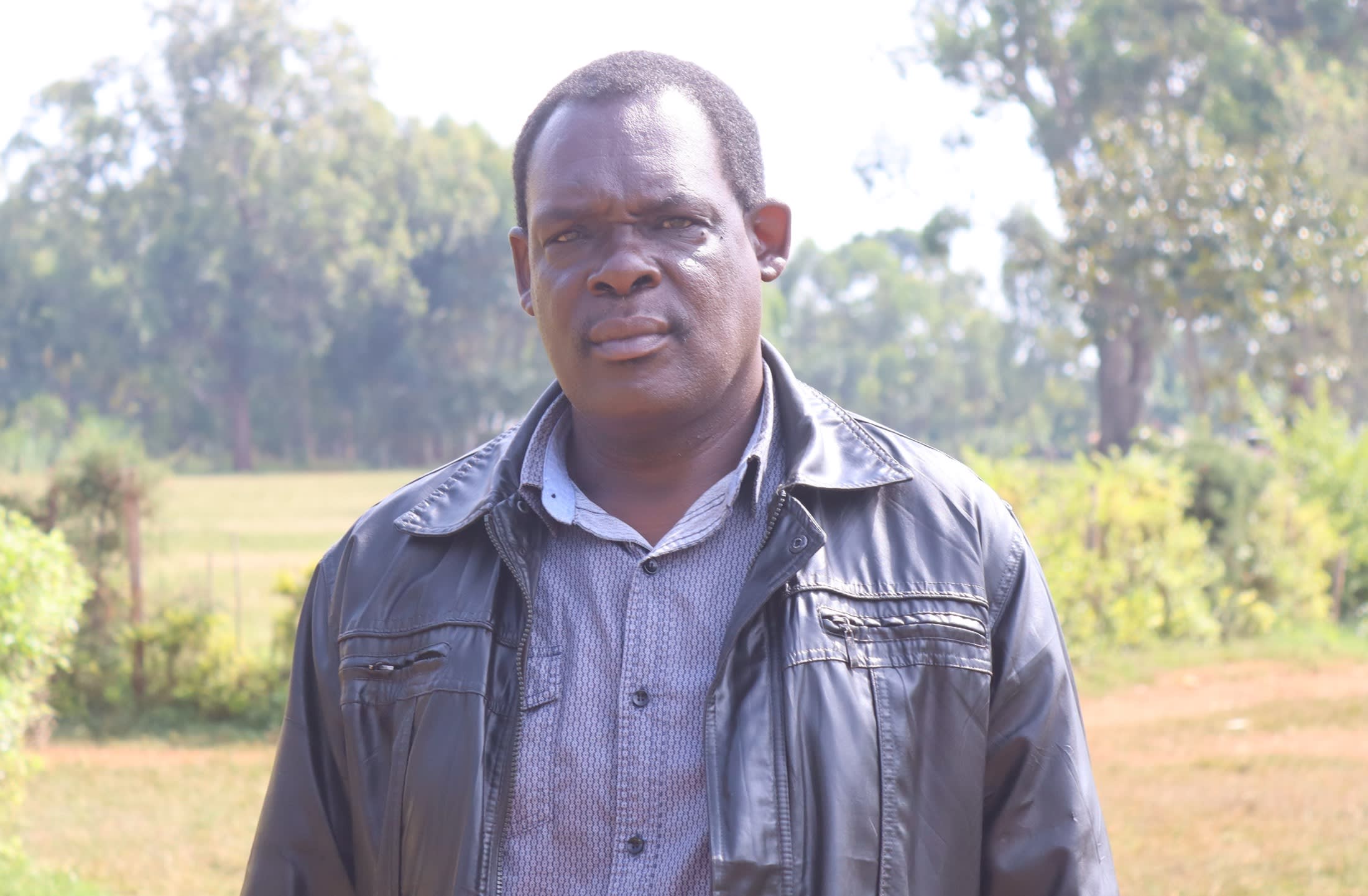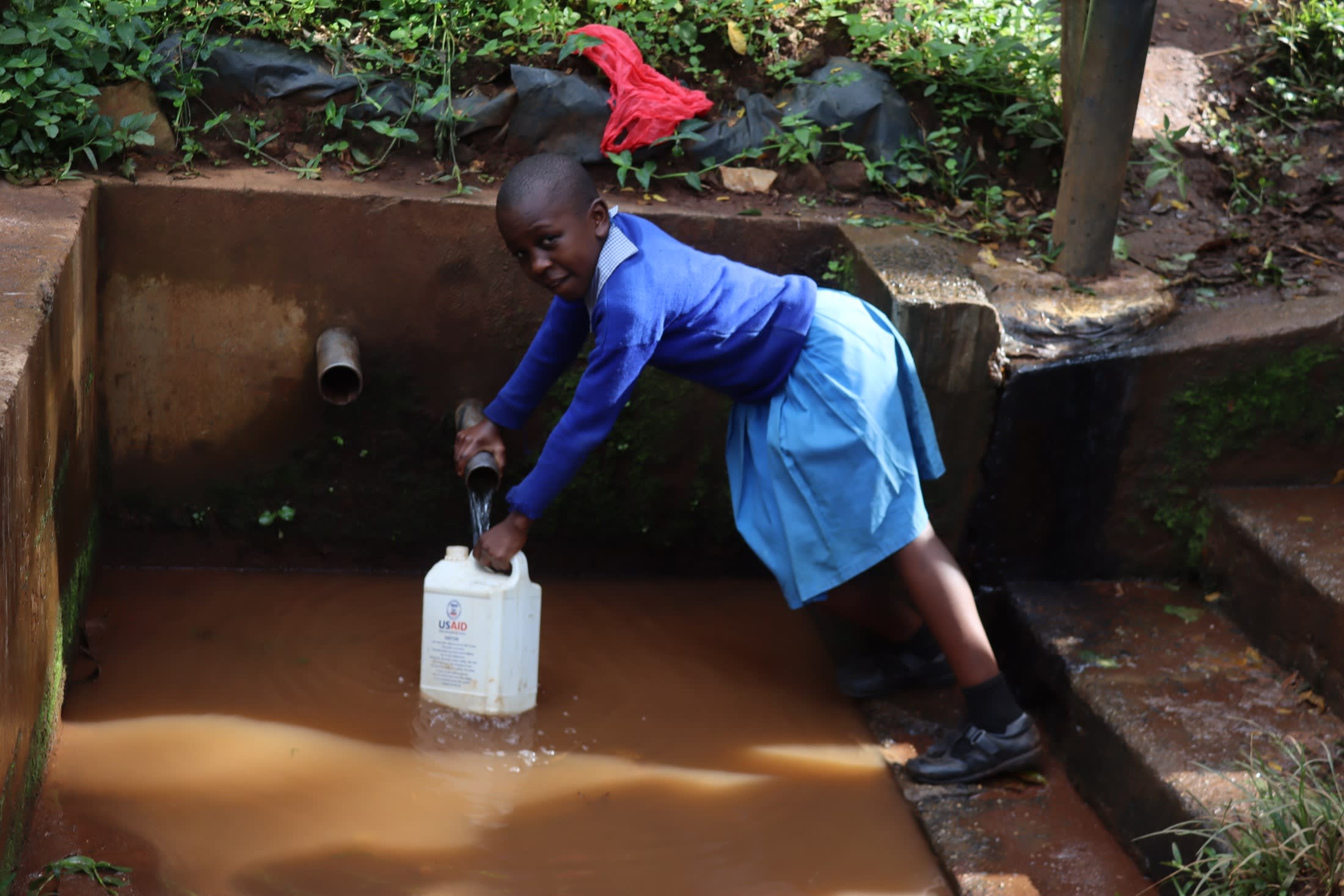The 543 students and staff at Shisango Primary School have no reliable water source on their school campus.
There is a small 5,000-liter rainwater tank, but it is too small to offer any real relief. With the high population at the school, it empties quickly, and during the dry season, it often sits completely empty.

Because the rain tank offers insufficient water, students must collect water from a community spring, but it is far from the school. Time away from class means less learning for pupils and the expenditure of a lot of energy acquiring water, causing them to be tired and less able to concentrate when they are in class. Even students' break times when they should be playing are consumed.
"Time management is a problem because students have to go to collect water, thus consuming a lot of time, time that could have been used performing other duties or studying," said 53-year-old headteacher Peter Wafunafu (shown below).

The spring is also not in great condition. To collect water, students must either lean over while balancing on the bottom step, stand on stones in the water, or step into ankle-deep, muddy water.
"Sometimes it is hard to fetch water because it stagnates at the drawing point, forcing us to put [in] stones so that we have a place to step on so as to get the water," said 11-year-old Mitchelle A., seen below fetching water.

The spring is also overcrowded, as it is the primary water source for community members, causing long lines and wait times for everyone to collect minimal water.
"Also, we fetch water in small quantity because the water users are so many [and we have] wastage of time because we share water with community members, so we are forced to line up for a very long time," said Mitchelle.
With a borehole on their school campus, students should be able to get back to learning, and everyone can be assured that the water they consume is safe.
Water at schools is unique, which is why we need unique solutions.
The Proposed Solution, Determined Together...
At The Water Project, everyone has a part in conversations and solutions. We operate in transparency, believing it benefits everyone. We expect reliability from one another as well as our water solutions. Everyone involved makes this possible through hard work and dedication.
In a joint discovery process, community members determine their most advantageous water solution alongside our technical experts. Read more specifics about this solution on the What We're Building tab of this project page. Then, community members lend their support by collecting needed construction materials (sometimes for months ahead of time!), providing labor alongside our artisans, sheltering and feeding the builders, and supplying additional resources.
Water Access for Everyone
This water project is one piece in a large puzzle. In Kenya, Sierra Leone, and Uganda, we're working toward complete coverage of reliable, maintained water sources that guarantee public access now and in the future within a 30-minute round trip for each community, household, school, and health center. One day, we hope to report that this has been achieved!
Training on Health, Hygiene & More
With the community's input, we've identified topics where training will increase positive health outcomes at personal, household, and community levels. We'll coordinate with them to find the best training date. Some examples of what we train communities on are:
- Improved hygiene, health, and sanitation habits
- Safe water handling, storage & treatment
- Disease prevention and proper handwashing
- Income-generation
- Community leadership, governance, & election of a water committee
- Operation and maintenance of the water point
Handwashing Stations
Alongside each water source, we also provide two new gravity-fed handwashing stations that will allow everyone at the school to wash their hands without running water. Handwashing is so important to help prevent future water-related illnesses in the school community.
The student health club will maintain the stations, fill them with water, and supply them with soap (which we will teach the school community how to make during the training!).
VIP Latrines
In addition, we will construct two triple-door Ventilated Improved Pit (VIP) latrine blocks designed to prevent fecal disease transmission. Each latrine will have a cement floor, which is easy to use and clean regularly. Three doors will serve the girls, and three doors will serve the boys.



 Rehabilitation Project
Rehabilitation Project

































